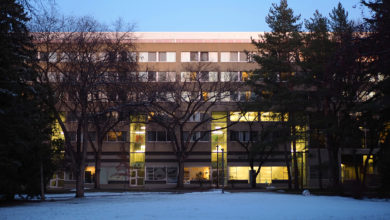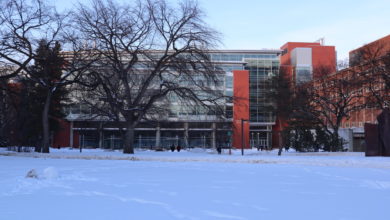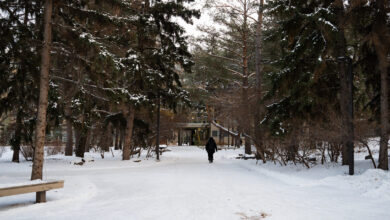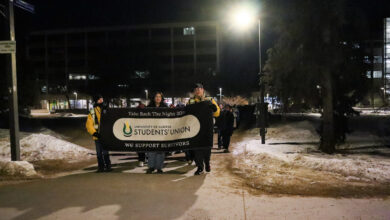Campus Food Bank ends year in cash deficit, increased demand continues
The CFB, which is operating on emergency savings, is working towards reducing costs for next year after ending the 2023-24 academic year in a cash deficit.
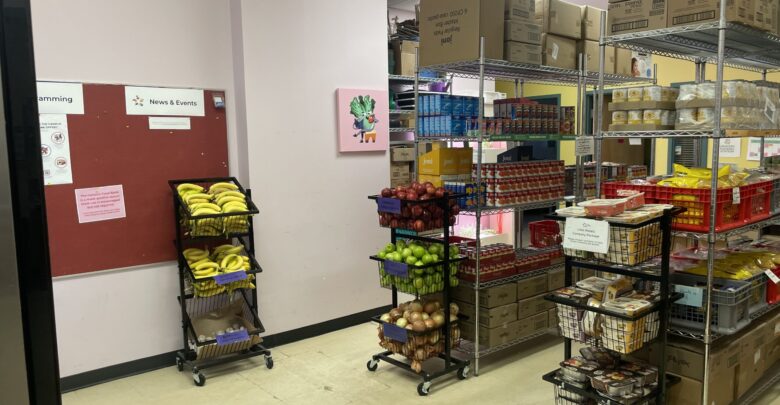 Supplied
SuppliedThe University of Alberta Campus Food Bank (CFB) recently released a report outlining the 2023-24 academic year. Over the past few years, the CFB has seen an increase in demand for its services, which Executive Director Erin O’Neil attributes to food inflation.
Despite various sources of support, the CFB ended the year in a cash deficit and is currently operating on emergency savings.
“We’ve ended one year in a deficit, we can’t do that again,” O’Neil said. “We continue to see an increase in visits [and] an increase in demand for supplementary food supports. We’ve also seen a really concerning increase in our spending on food.”
In the 2022-23 academic year, the CFB’s demand increased 142 per cent from 2021-22, according to the report. This is the largest increase that the CFB has experienced in years. Additionally, demand increased 47 per cent in 2023-24 from 2022-23.
“We’ve also hit the maximum number of people we can see in our space. That lower increase is artificial because we couldn’t see more people if we wanted to,” O’Neil said.
Currently, O’Neil said CFB staff are focusing on ways to manage increasing costs and demand as well as adjusting services in order to expand.
“When does it end? It’s something that we’ve really started to ask ourselves a lot because it’s an unsustainable increase year over year.”
“Such an increase over two years means that demand looks different every month,” according to O’Neil
Increased demand has caused the CFB to explore two ways of cutting costs: “affordable sources of food purchasing and more sources of free food.”
Volunteers from the CFB go to Edmonton’s Food Bank several times a week to pick up food, according to O’Neil. They have also consulted with local businesses about end of day donations.
The CFB has also opened the community pantry in Rutherford Atrium to address the increased demand.
“We’re scrambling to be creative on an ongoing basis and also trying to be responsive to client feedback,” O’Neil said. In order to meet increased demand, the CFB had to double its fundraising efforts two years ago.
“That is just not feasible to do again. We’re looking at more cost reductions in the coming year,” O’Neil said.
O’Neil says that “there is a lot of potential [for support] in this university community”
The CFB receives support through grants and donations from many different organizations. It also collect fees from undergraduate and graduate students through the U of A Students’ Union (UASU) and the Graduate Students’ Association (GSA).
Additionally, the CFB receives support from U of A alumni through the Alumni Association and individual alumni, O’Neil said. She added the Dean of Students Office (DoS) also advocates for resources, and partnered with the CFB and Facilities and Operations for the community pantry launch.
To reduce costs, the CFB has paused its cooking classes for the foreseeable future and moved its snack stations to a cost-sharing model with host locations, O’Neil said.
“Over the next year, we’re really committing to looking around for creative ideas, getting experimental —looking to our community but also around the world for ways to do better at this work.”

